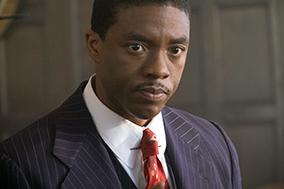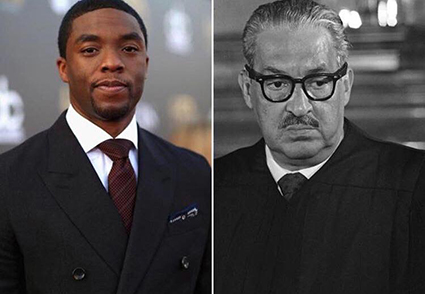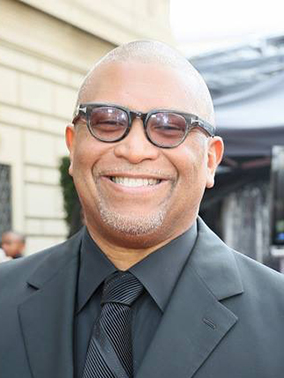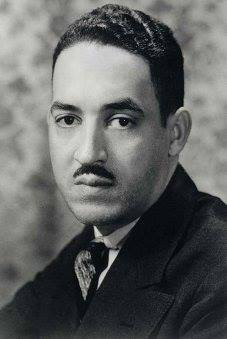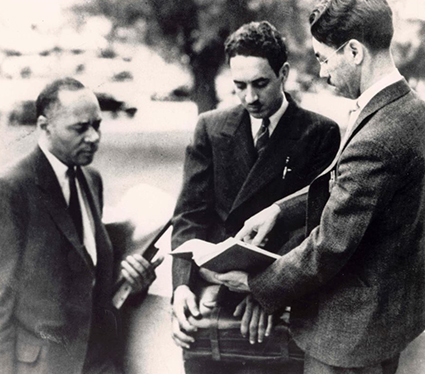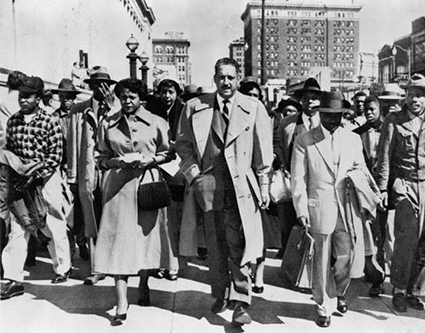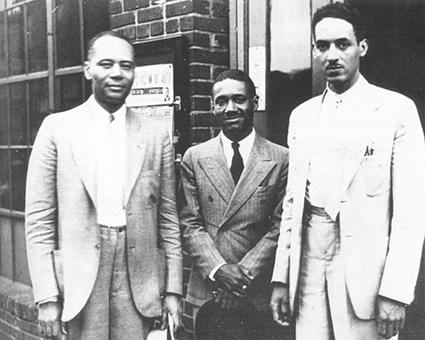RENDERING JUSTICE
November 5, 2017 by Las Vegas Black Image Magazine
Filed under Cover Story, Feature, Photos
‘Marshall’ brings to life a seminal period in the life of an American icon.
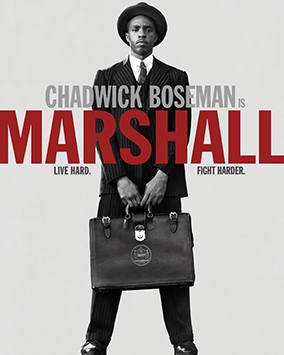 Contrary to what audiences might expect at a moment of peak biopic, “Marshall” does tell the entire life story of America’s first black Supreme Court justice; nor does it depict his landmark work to desegregate schools and dismantle the idea of “separate but equal.” Instead, it illustrates his brilliance and tenacity through the lens of a case from early in his career, when — as a crusading NAACP attorney — he came to the defense of a black man accused of rape by a white woman.
Contrary to what audiences might expect at a moment of peak biopic, “Marshall” does tell the entire life story of America’s first black Supreme Court justice; nor does it depict his landmark work to desegregate schools and dismantle the idea of “separate but equal.” Instead, it illustrates his brilliance and tenacity through the lens of a case from early in his career, when — as a crusading NAACP attorney — he came to the defense of a black man accused of rape by a white woman.
The result is a powerful film that speaks to lingering concerns about unequal justice and how African-Americans are treated by our nation’s institutions. Las Vegas Black Image sat down with the film’s director, Reginald Hudlin, and its star, Chadwick Boseman — for a conversation about the making of the movie and what it means to delve into this formative period in the life of a man who altered the course of American history.
Why was it important for you to play Thurgood Marshall?
Boseman: “Marshall” was important to make because it is about a man who made America live up to its dream. He fought so that the idea that we are created equal would be actualized. Any movie about Thurgood Marshall is important and we didn’t try to present the movie as a biopic. Our movie is one that anyone can enjoy, whether you know the history of Thurgood Marshall or not. It’s a legal drama — a “whodunit.” Those elements are what grabbed me and made me want to do the movie. This is a movie you have to see not just because it’s important, but because you want to see a great story.
What do you feel is the biggest takeaway for viewers when they see “Marshall”?
Boseman: I have a line in the movie that Thurgood Marshall actually said. He says, “The fire I am chasing is fire itself.” I did the film because you want to catch fire — the script, and what’s in it, and the ideas. You do a film like this because it lit a fire inside of you. You want to light a similar fire inside the people who see the movie. So I feel that the film gives people a sense of hope and that fire of determination that Thurgood Marshall possessed.
Was the movie Marshall something you always wanted to direct?
Hudlin: Thurgood Marshall has always been a giant hero of mine. I almost named my son Thurgood. I thought that would be a little bit too much (laughter). I always thought that Thurgood was one of the most underrated American heroes. And if you wanted to add another face to Mount Rushmore, it would be Thurgood Marshall. The Constitution was the tremendous promise of what America could be, but flawed from the beginning because of racism and slavery. The man that did the most to make the Constitution a reality was Thurgood Marshall. You would have never had President Obama without first having Thurgood Marshall.
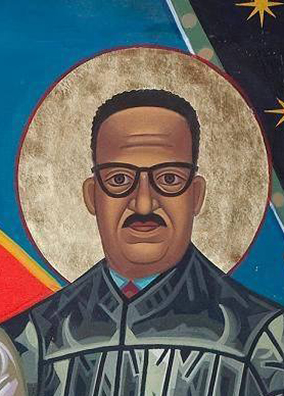 Doesn’t that resonate with what is going on today in America?
Doesn’t that resonate with what is going on today in America?
Hudlin: Freedom is not free, and every generation has to fight the fight. We ask, “Haven’t we already fought this fight?” Yes — and we have to do it again. What the movie says is, ‘We can win!’ It’s very easy to feel depressed, or overwhelmed, or outnumbered. But what we need to remember is that we have the truth and justice. And if we are strong and smart we can win.
Is there a delicate balance between the truth and storytelling in movie making?
Hudlin: You just really have to give context, so that people understand this is the world of that time. And thank goodness that people are in shock to see those realities of injustice. If we don’t remember our past, we are doomed to repeat it. That is one of the reasons I liked that we did the film in Connecticut — because Northern racism sometimes gets a pass. Everybody is used to the Southern redneck sheriff who chews tobacco, and we’re comfortable condemning those people. When you see Northern racism, it’s gentler — but it’s the same institutionalized racism.
Catch the rest of this story in the December Issue of Black Image



